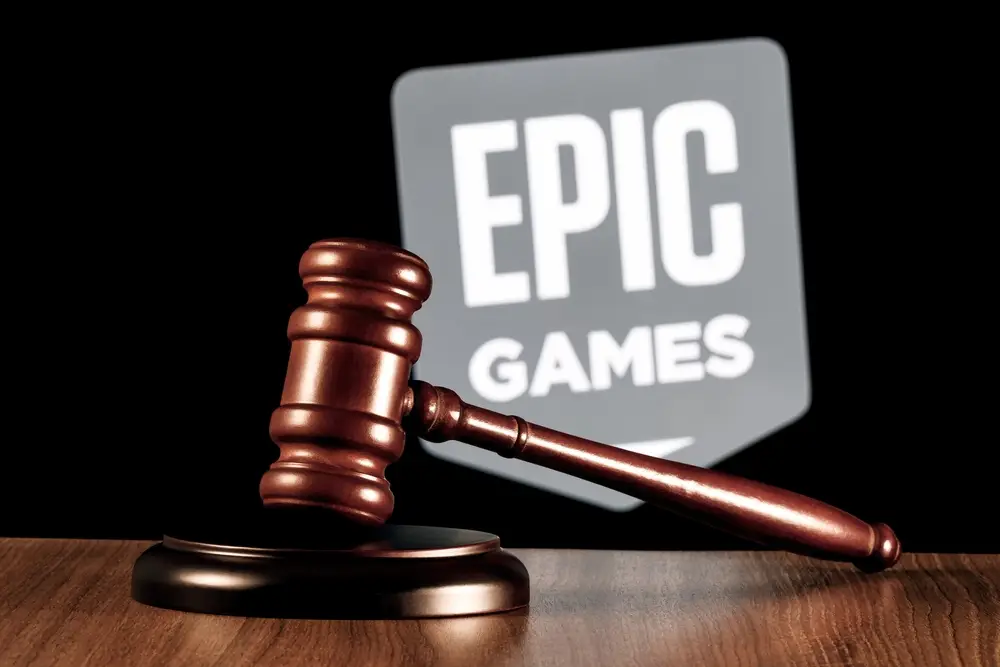The Federal Trade Commission (FTC) is distributing over $72 million in refunds to millions of Fortnite players as part of a massive $245 million settlement with Epic Games.
The refunds are going out to players unknowingly charged for in-game purchases and locked out of their Fortnite accounts for disputing the charges.
The deadline to submit a claim is February 14, 2025.
The Epic Games Lawsuit: What Happened
In December 2022, Epic Games, the maker of the hugely popular game Fortnite, agreed to pay $245 million to settle allegations by the FTC.
Millions misled
The Agency alleged that the company used deceptive design tricks, such as "dark patterns," to dupe millions of players into making unintended in-game purchases.
According to the FTC's complaint, Epic's "insufficient purchase confirmation flows" led to hundreds of millions of dollars in unauthorized charges, many made by children without their parents' knowledge.
Accounts locked
When consumers disputed these charges with their credit card companies, Epic locked their Fortnite accounts. The FTC found that these practices violated the FTC Act's prohibition on unfair and deceptive practices.
Policy changes
Under the settlement, Epic must now adopt more transparent purchase confirmation screens, cannot charge consumers without informed consent, and cannot punish consumers who request refunds for unauthorized charges.
The company must also provide better customer service around refunds and purchase issues, protecting the millions of adolescent Fortnite players from manipulative interfaces and unauthorized charges in the future.

Dark Patterns: How Epic Games Tricked Players
The FTC's case against Epic Games revolved around the company's use of manipulative design strategies, known as "dark patterns," to drive in-game purchases.
Dark patterns are interface designs that intentionally mislead or coerce users into taking actions they didn't intend to, often to their detriment.
In Fortnite, Epic used the following dark patterns to get players to spend V-Bucks (the game's premium currency) on skins, emotes, and other cosmetic items without meaning to:
- Inconsistent and confusing button configurations provoking players to purchase items accidentally when trying to preview them or perform other actions.
- Intentionally obscure and hard-to-find cancel and refund options that made it difficult for players to undo accidental purchases.
- Allowing purchases to be made with a single click or button press without any confirmation step or parental consent measures.
These tactics led to millions of unintended purchases and significant frustration for players and parents.
The FTC's settlement curbs the use of dark patterns in Fortnite and sets a precedent for the wider gaming industry regarding transparent and fair micro-transaction design.
Who is Eligible for a Fortnite Refund?
Fortnite players charged for unwanted in-game purchases between January 2017 and September 2022 are eligible for a refund from the settlement.
This group may include:
- Players charged for items they didn't want.
- Parents whose kids made purchases without permission between January 2017 and November 2018.
- Players whose accounts were locked after they disputed unauthorized charges with their credit card company.
You must be at least 18 to submit a claim.
Parents or guardians can file on behalf of their minor children, and it doesn't matter if the player played on Xbox, PlayStation, Nintendo Switch, PC, or mobile—if Epic charged you without your consent, you can file a claim.
Breaking Down the Fortnite Settlement Numbers
The scale of Epic Games' deceptive practices and the resulting settlement are staggering. Let's examine the key numbers.
$245 million
Epic agreed to pay this amount to settle the FTC's allegations, including $72 million in direct refunds to players.
$275 million
What Epic must pay in penalties for violating the Children's Online Privacy Protection Rule (in addition to the $245 million settlement).
37 million
Number of Fortnite players the FTC has already emailed about available refunds.
$72 million
Refunds are currently available to players who file a claim, out of the total $245 million settlement fund.
$52.37
The average refund amount players would receive if all 37 million emailed players filed a claim for an equal share of the $72 million
Of course, the final refund amounts will depend on how many eligible players file claims before the January 2025 deadline.
With such a sizable settlement pool, even a fraction of eligible players filing claims could lead to meaningful refund checks.
Understanding the FTC's Role in Consumer Protection
The Fortnite settlement is a significant victory for the FTC in its ongoing efforts to protect consumers, especially children, in the digital marketplace.
As in-game purchases and microtransactions have become increasingly prevalent in recent years, so have reports of unauthorized charges and manipulative tactics.
The FTC has the authority to investigate and penalize companies for engaging in unfair or deceptive practices under the FTC Act.
COPPA explained
In the case of Epic Games, the FTC also alleged violations of the Children's Online Privacy Protection Rule (COPPA), which imposes additional requirements on companies that collect personal information from children under 13.
The settlement not only provides refunds to millions of wronged consumers but also forces Epic to change its interfaces and practices to prevent future harm.
Get Your Share of the Fortnite Refund Before Time Runs Out
Now, you can finally regain some of the money Epic Games took from you over the years. The settlement is a major win for gamers' rights and consumer protections.
Stay tuned to the FTC's official settlement page for the latest refund timeline and process updates. And keep your fingers crossed in the meantime - with luck, some bonus V-Bucks should be hitting your account in the coming months.




Add Comment